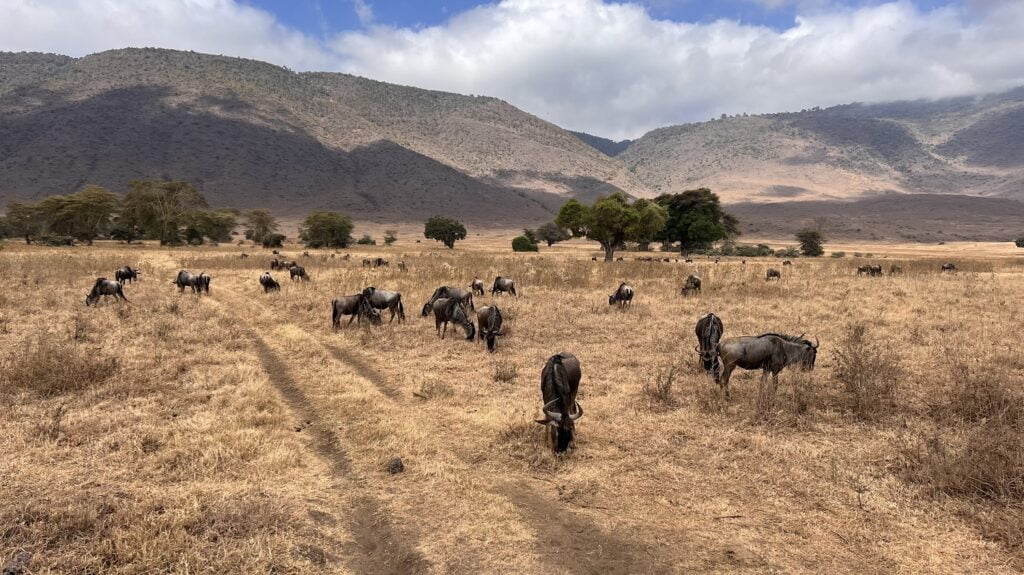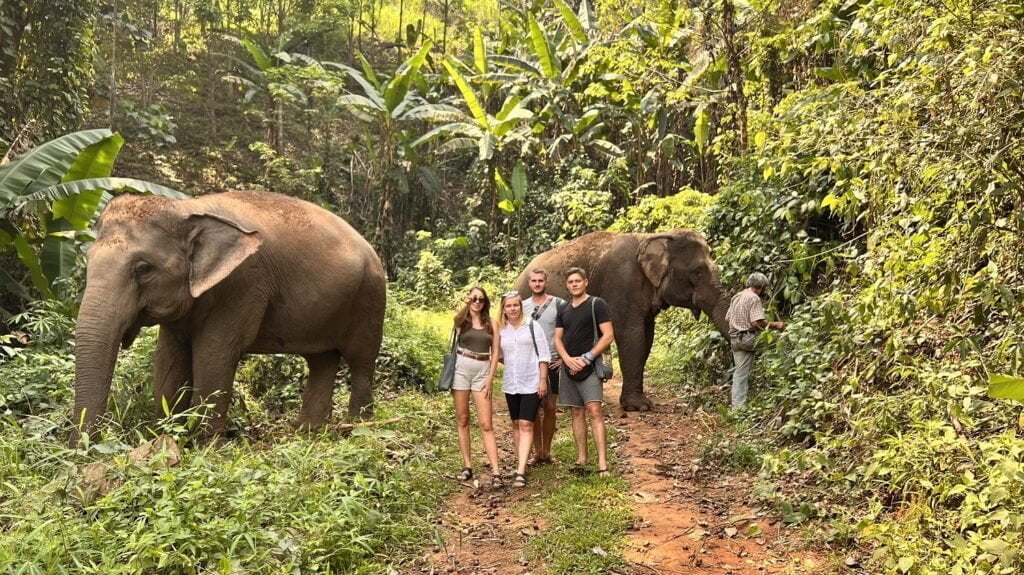By Aleksandra Staromiejska of PhotoAiD
Sustainable travel has become more important than ever before, as the impact of climate change and environmental degradation becomes increasingly apparent. As we look ahead, sustainable travel practices will play a key role in the recovery of the travel industry. More and more travelers are looking for ways to reduce their impact on the environment and support local communities and economies.
As a result, sustainable travel trends are on the rise. They help preserve the planet for future generations, but also provide travelers with unique, authentic experiences. In this blog post, we’ll explore them in more detail.
Our List of Sustainable Travel Trends

Eco-Friendly Accommodations
Eco-friendly accommodations are a growing trend as more travelers look for ways to reduce their environmental impact. According to the Passport Photo Online Study, 60% of Americans have stayed at a hotel that follows sustainable practices at least once over the last two years. So, what are the options when it comes to this type of housing?
One popular option is eco-lodges, which are often located in remote, natural areas, and usually rely on renewable energy sources, such as solar power, and use sustainable building materials. Many eco-lodges are also involved in conservation and community development efforts, giving travelers the opportunity to make a positive impact on the local area. A good tip is to look for the Green Key label.
Another popular form of eco-friendly accommodation is glamping, which is a combination of camping and luxury amenities. Glamping tents are typically equipped with comfortable beds, electricity, and even private bathrooms. They allows travelers to enjoy the beauty of the outdoors while reducing their environmental footprint, compared to traditional camping.
When choosing eco-friendly accommodations, it’s important to verify that the property truly practices sustainable practices and not only using the term as a marketing strategy. Look for certificates or awards that demonstrate their commitment, such as eco-certification and green-key awards, you can also check their website or reach out to them to inquire about their sustainability practices.
It’s also a good idea to learn about the rules of the country you wish to travel to, and if you can work on your holiday. Working holiday visas are great for those looking to work and travel at the same time.

Ecotourism and Responsible Wildlife Tourism
Ecotourism focuses on preserving the environment and improving the well-being of local communities. There are many different types of ecotourism activities and destinations, each offering a unique and educational experience for tourists.
We definitely recommend looking into wildlife safaris in national parks and game reserves. These trips allow tourists to observe animals in their natural habitats while supporting conservation efforts. Visitors can go on guided tours with expert guides to learn about the different species of animals they encounter and learn about the work being done to protect them.
Hiking and camping in wilderness areas is also a great example. This type of travel allows visitors to experience the beauty of nature while promoting the preservation of natural habitats. Popular destinations for this include the Amazon rainforest, the Grand Canyon and many national parks around the world.
Volunteer vacations are another great option. These trips involve participating in conservation or community development projects in remote areas. For example, you can work on a sea turtle conservation project in Costa Rica or build a school in a rural village in Africa. This type of eco-tourism allows visitors to make a meaningful impact while learning about local cultures and ways of life.
Or, maybe you will be interested in agritourism? Visitors can stay on working farms or ranches, learn about sustainable agriculture practices. This is an opportunity to learn about the local culture, tradition and also sustainable way of living. Ecotourism homestays are another way to learn about local culture while supporting conservation efforts. Tourists can stay with local families in a rural area and engage in traditional ways of living. This type of eco-tourism is a great way to learn about the local culture while supporting the local community.

Sustainable Transportation Options
In recent years, there has been a growing trend in sustainable transportation. One example is the increased popularity of eco-friendly modes of travel, such as biking and walking. Many travelers are choosing to explore new destinations on foot or by bike, as these modes of transportation not only reduce carbon emissions, but also offer an immersive and active way to experience a new place.
Public transit is also rapidly gaining popularity, as more and more travelers are choosing to take the train, bus, or subway rather than driving or flying to their destination. Public transit can be a more efficient, cost-effective, and sustainable way to get around, particularly in urban areas. Many cities are now investing in public transit infrastructure to make it even more convenient for tourists to travel sustainably.
Another trend in sustainable transportation is the growing popularity of electric cars for road trips. Electric cars are powered by electricity rather than gasoline, which means they produce zero emissions and are much more environmentally friendly. Many car rental companies and even hotels now offer electric cars and charging stations as an option to help travelers reduce their environmental impact while still enjoying the freedom of a road trip.

Sustainable Food and Gastronomy
Sustainable food and gastronomy is not only good for the environment but also for travelers’ health and well-being, as well as supporting local economies. One way that the travel industry is promoting sustainable food options is by sourcing ingredients from local and organic farms. This helps to reduce the carbon footprint of the food by minimizing transportation. Many restaurants are also using seasonal produce, which not only is sustainable but also helps to create unique and delicious dishes.
Another aspect of sustainable food and gastronomy is reducing food waste. Some hotels are now implementing food waste reduction programs, such as composting, using leftovers to make new dishes, and encouraging guests to take leftovers with them. This not only helps to reduce waste but also helps to make sure that the food is used efficiently and sustainably.
Sustainable food also encompasses responsible sourcing of ingredients. This can include avoiding ingredients that are overfished or that are harvested in a destructive way, as well as avoiding products from animals raised in inhumane conditions. Additionally, some restaurants and hotels also promote plant-based options, and reduce the overall consumption of animal products.

Circular Economy Tourism
Circular economy is a new concept that focuses on creating closed-loop systems and reducing waste by reducing the use of resources, reusing materials and recycling waste. Many hotels and resorts are now implementing recycling programs and encouraging guests to reduce their waste during their stay. This can include simple steps such as separating recyclable materials, composting food waste, or even installing water-saving showerheads.
The reuse of resources, such as energy and water is also encouraged. This can be done by using renewable energy sources, such as solar or wind power, to power hotels and resorts, or by installing systems for capturing and treating greywater for reuse in irrigation. The circular economy also applies to transport services, an important aspect of tourism. This can include promoting electric vehicles, carpooling, or even bike-sharing schemes to reduce the number of cars on the road and decrease carbon emissions.

Reducing Single-Use Plastics
Single-use plastics are a major environmental concern, and the travel industry is one of the major contributors to this problem. Plastic bottles, straws, and bags are frequently used and discarded in the travel industry, and these items can take hundreds of years to degrade in the environment. As a result, reducing single-use plastics and promoting environmentally-friendly products is becoming an important focus for the travel industry.
Promoting the use of reusable water bottles is an important step. Many hotels and tour operators are now providing guests with reusable water bottles, or even filling stations where guests can refill their own bottles. This helps to reduce the number of plastic bottles that are used and discarded while traveling.
Another trend is offering biodegradable and compostable alternatives to single-use plastics. For example, some hotels are now providing guests with biodegradable soap and shampoo in their rooms, and some tour operators are using biodegradable plates and utensils on their trips. These products are made from natural materials, such as bamboo and corn starch, that can break down quickly and won’t harm the environment.
Future of Sustainable Travel
As the world continues to grapple with the challenges of climate change and environmental degradation, the travel industry has an important role to play in promoting sustainable practices. By choosing sustainable travel options, travelers can not only reduce their environmental impact but also support local economies. As travelers become more conscious about the impact of their travel choices, we can expect to see even more sustainable travel trends emerge in 2023 and beyond.
It’s important to remember that sustainable travel doesn’t mean giving up on comfort or luxury, it’s all about finding a balance between responsible tourism, environmental protection and economic development. It’s encouraging to see that the travel industry is actively participating in these efforts and continuously working to innovate and make sustainable travel more accessible to all. As travelers, let’s also do our part in making sustainable travel choices, for the health of our planet, communities and ourselves.

_____________________________________________________________________
Author’s bio:
Aleksandra Staromiejska is a travel, food, and wellness passionate who has visited 50+ countries on four continents. She is a Travel Leader for the adventurous travel company Solisci Adventure Club and the Digital PR Specialist at PhotoAiD. After spending a couple of months in Thailand and climbing Mt Kilimanjaro, she is getting ready for another adventure – spending winter in Bali.